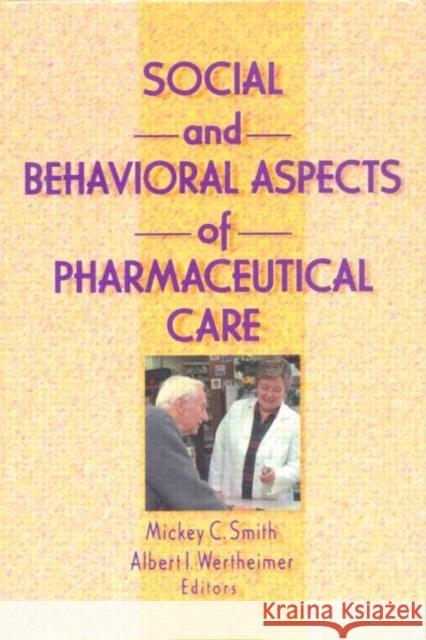Social and Behavioral Aspects of Pharmaceutical Care » książka
Social and Behavioral Aspects of Pharmaceutical Care
ISBN-13: 9781560249528 / Angielski / Twarda / 1996 / 835 str.
Social and Behavioral Aspects of Pharmaceutical Care takes known social and behavioral science principles and applies them to pharmacy practice. This allows readers who are training to deliver or already delivering pharmaceutical care to enhance their communication, counseling, and patient education skills. While working through this superb text, students and practitioners will develop optimal skills as problemsolvers, therapeutic consultants, patient educators, and counselors as they learn how to enhance patient compliance, negate stigma, and help patients become more comfortable with their medical situations. The instructor's manual that comes with the text is filled with exercises that highlight the most important aspects of each chapter and engages readers in the content of each chapter. Readers who approach this text with a real desire to better understand how behavior links to the complexities of an individual's or social group's actions and deeds will find it exhilarating reading as they gain a better understanding of and appreciation for pharmaceutical care and its behavioral underpinnings.Also, instead of offering only a few definitive answers, Social and Behavioral Aspects of Pharmaceutical Care contains extensive descriptions of phenomena known to be true but which are all subject to change when new variables are introduced. This helps readers become more aware of and comfortable with the gray areas of pharmacy. Authors in Social and Behavioral Aspects of Pharmaceutical Care take pieces of the complex web of pharmaceutical care, describe known microcosmic components of such care, and then relate the pieces back to the integrity of the web. Readers will find that the behavior of the patient, the prescriber, the systems that allow for these interactions, and, ultimately, the outcomes of medication use are in fact, not as simple as they may appear.Readers learn to deal with these complexities by improving their interactive skills in these areas: compliance placebosmedication stigma self-medicationhealth beliefs opinion informationprofessionalism socializationnonmedical drug use public healthillness behavior sick rolehow attitudes affect behaviorsethics Using this text in pharmaceutical administration, social pharmacy, and behavioral pharmacy courses better prepares training pharmacists for contemporary and future roles that more closely bind them to their patients and their prescribing community. It offers an excellent, comprehensive overview of the social-economic aspect of pharmaceutical care through its theoretical models and practical examples that elaborate on the pharmacist's role in identifying patients'non-compliant behavior and in managing other drug-related problems.Undergraduate and graduate pharmacy students; pharmacy school, drug company, and health science center libraries; practicing retail and hospital pharmacists; and national, state, and local pharmacy associations will find Social and Behavioral Aspects of Pharmaceutical Care an important addition to their reading material as it serves as a valuable developmental tool for both students and practicing professionals











